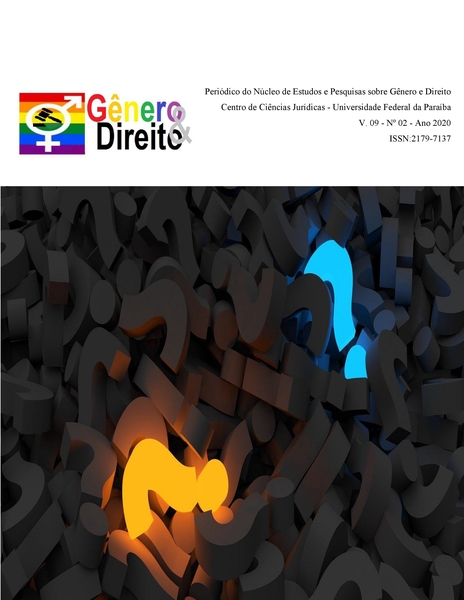FLICKERING CONCEPTS OF COGNITIVE-IDEOLOGICAL MATRICES
Based on a series of sociological studies during 2015–2020
Palavras-chave:
ideology, morphology of ideologies, attitude, concept, narrative, young students, Russia, financial crisis, liberalism.Resumo
The study specifies the concept of political ideology in terms of its matrix structure, in particular the “flickering concepts” of ideological attitudes, which are hard to identify by means of traditional sociological surveys. Considering the morphological approach to the analysis of ideological consciousness (suggested by Michael Freeden), the authors introduce the concept of cognitive ideological matrices, which allows us to describe the process of transition from proto-ideological to ideological concepts, especially at the level of individual consciousness. The authors studied the above-mentioned concepts of flickering ideological consciousness in the framework of scientific projects implemented by them during 2015–2019. The studies aimed to reveal the ideological attitudes of students of Rostov-on-Don. The methodology of these projects included quantitative and qualitative analysis: in the course of group interviews, based on the material of the discourse declared by the respondents, relevant “flickering” concepts of ideological attitudes were revealed and then operationalized in the questionnaire, and the results of the survey were later falsified in focus groups. Because of the study, it was possible to first identify the “zero level” of ideology, at which the minds of young respondents are potentially open to the influence of diverse and often mutually exclusive ideological orientations, and second, to pinpoint the changes that have occurred in the cognitive ideological matrices of Rostov-on-Don students over the past five years. These changes mean that the basic concepts of left-liberal ideology are strengthening, and the right-wing “flickering concepts” are shifting to the center-left concepts of social justice, equality, etc. In general, it is common for the interviewed students to display situational ideological attitudes and indifference toward larger ideological narratives. The results of the study can be used for comparative analysis and to forecast of the ideological attitudes of Russian students.
Downloads
Referências
Bahtin, M.M. (2000), “Marxism and the Philosophy of Language”, in Bahtin, M.M. (2000), Freudianism. The Formal Method in Literary Criticism. Marxism and the Philosophy of Language. Articles. Moscow: Labirint, 350–486.
Berger, P.L.; Luckmann, T. (1991), The Social Construction of Reality. A Treatise in the Sociology of Knowledge. London: Penguin Books.
Converse, P.E. (2006), “The Nature of Belief Systems in Mass Publics”, Critical Review: A Journal of Politics and Society, 18(1–3), 1–74.
Freeden, M. (1978), The New Liberalism: An Ideology of Social Reform. Oxford: Clarendon Press.
Freeden, M. (2003), Ideology: A Very Short Introduction. New York: Oxford University Press.
Freeden, M. (2019), “The Coming Realignment of Ideology Studies”, Journal of Political Ideologies, 24(1), 1–10.
Galanina, A. (2019), “The Russians were discouraged from holding a rally. Only a third of respondents considered political protestspossible”, Kommersant, 221, 5.
Goncharov, S.; Volkov, D. (2019), “Jemigracionnye nastroenija [Public Emigration Mood]”, Levada-Centr. Accessed on January 15, 2020 at https://www.levada.ru/2019/11/26/emigratsionnye-nastroeniya-4/.
Houghton, P. (2009), Political Psychology: Situations, Individuals, and Cases. New York & London: Routledge.
Jameson, F. (2002), The Political Unconscious: Narrative as a Socially Symbolic Act. London & New York: Routledge Classics.
Jost, J.T.; Kay, A.C.; Thorisdottir, H. (2009), Social and Psychological Bases of Ideology and System Justification. New York: Oxford University Press.
Konstantinov, M.S. (2018), Cognitive-ideological matrices, Development policy, state and world order: Proceedings of the VIII Russian Congress of Political Scientists, Moscow, December 6–8, 2018. Moscow: Aspekt Press.
Levada-Centr (2019), “Protest activity”. Accessed on January 15, 2020 at https://www.levada.ru/2019/09/03/protestnaya-aktivnost-5/.
Levada-Centr (2019), “Protest potential Accessed on January 15, 2020 at https://www.levada.ru/2019/12/02/protestnyj-potentsial-10/.
Lukichev, P.N. (2018), “Borderline ideologies of right-wing radicalism in the student community of the Rostov Region (based on case studies)”, OBZOR.NCPTI, 12(1), 34–51.
Mead, G.H. (1972), Mind, Self, and Society: From the Standpoint of a Social Behaviorist. Chicago: The University of Chicago Press.
N.A. (2019), “Monitoring Change: Key Trends”, Bulletin of social opinion: data, analysis, discussions, 128(1–2), 5–14.
Potseluev, S.P.; Konstantinov, M.S. (2018), “Migrirujushhie koncepty pravogo radikalizma v ideologicheskih attitjudah studencheskoj molodezhi”, Political Science, 4, 146–178.
Potseluev, S.P.; Konstantinov, M.S.; Lukichev, P.N.; Vnukova, L.B.; Nikolaev, I.V.; Tupaev, A.V. (2016), Games on the ideological periphery. Right-wing attitudes of students of the Rostov region. Rostov-on-Don: Izdatel'stvo JuNC RAN.
Vnukova, L.B. (2015), Right-wing ideologemes in the minds of students: the experience of the sociological dimension. Personality. Society. State. Problems of development and interaction. Materials of the All-Russian Scientific and Educational Conference, October 2-6, 2015. Krasnodar: Tradicija

